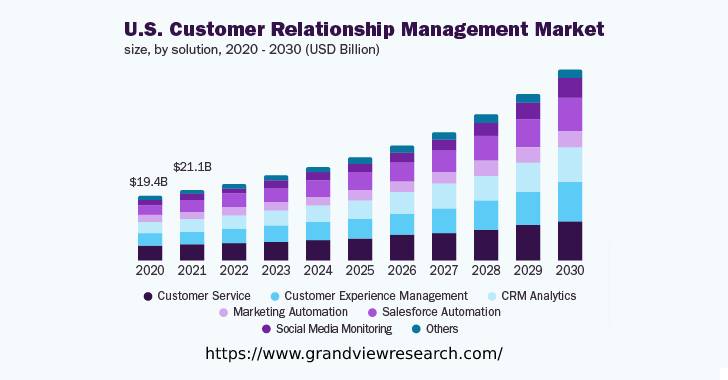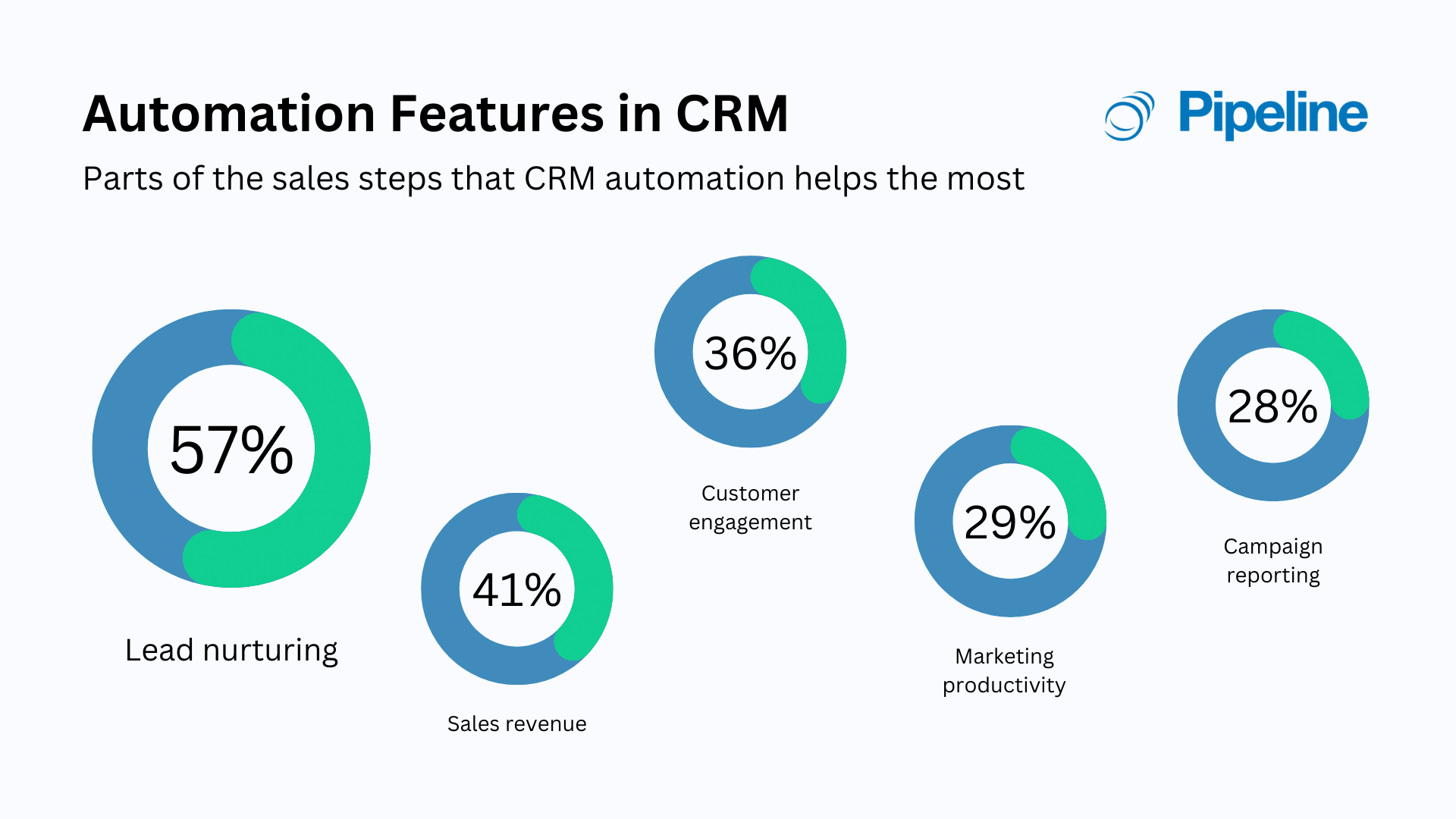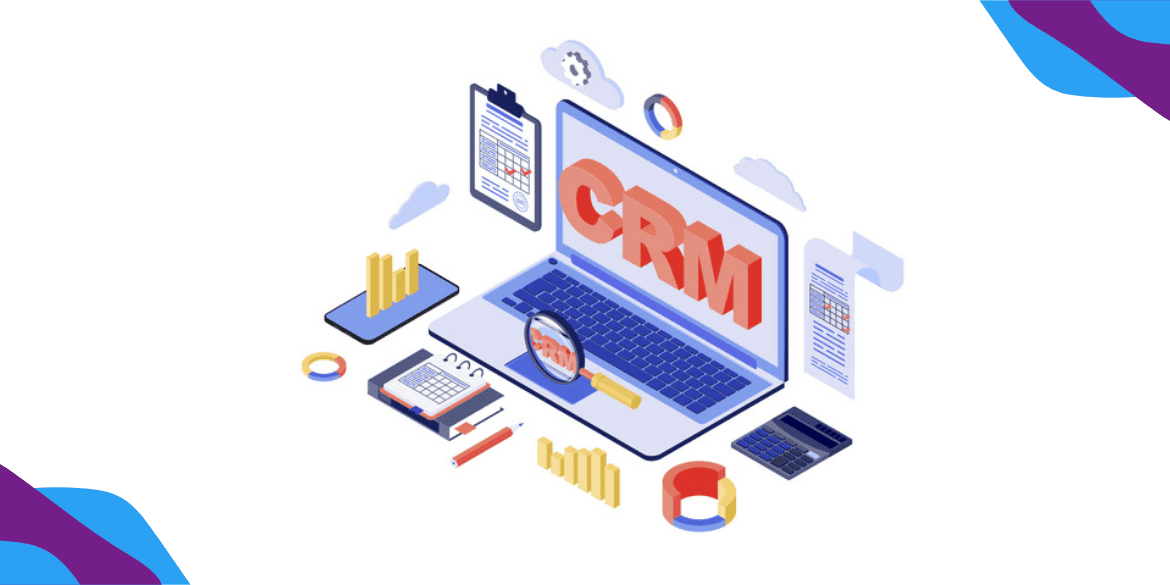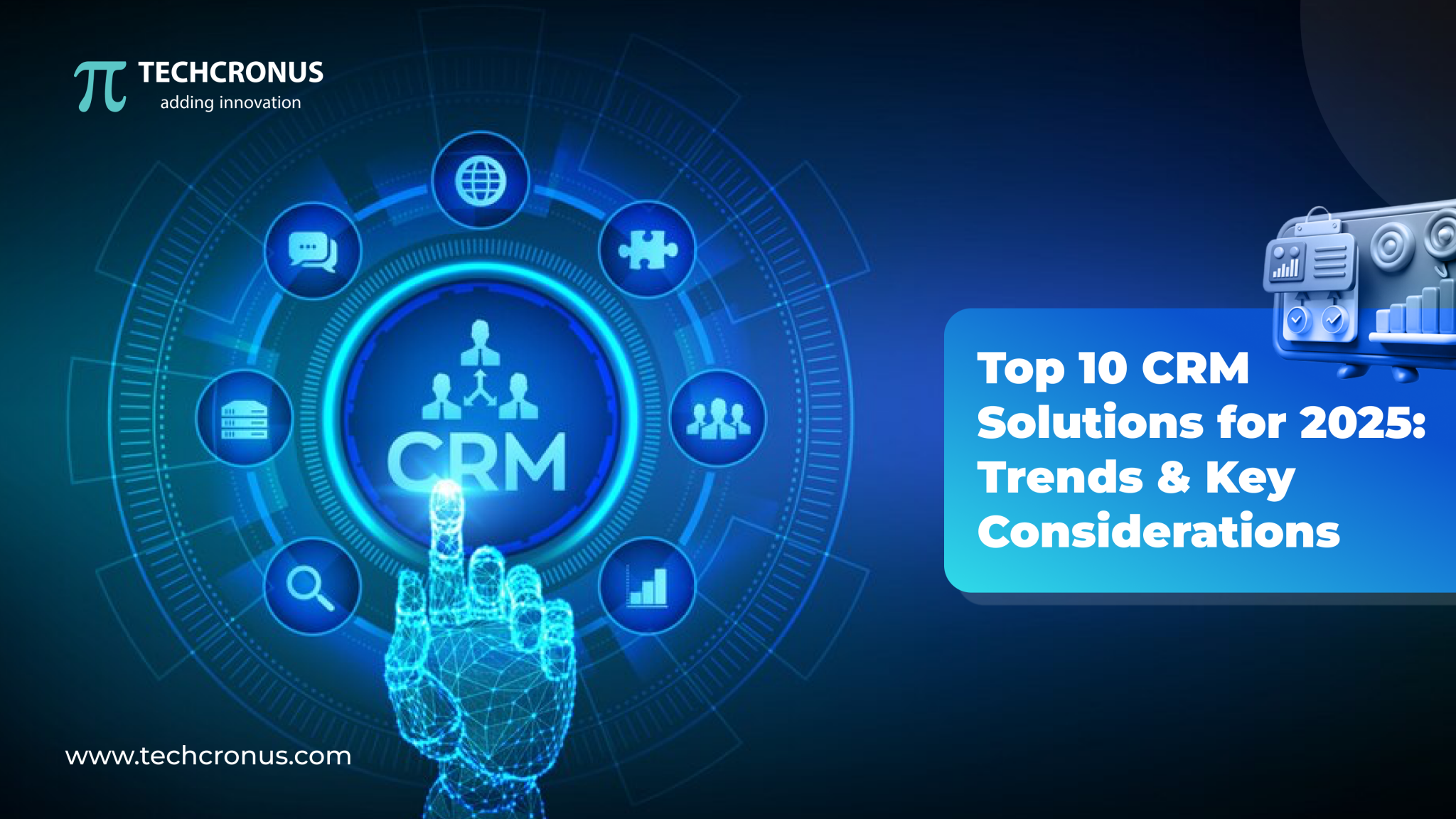CRM Marketing Trends 2025: Navigating the Future of Customer Relationships
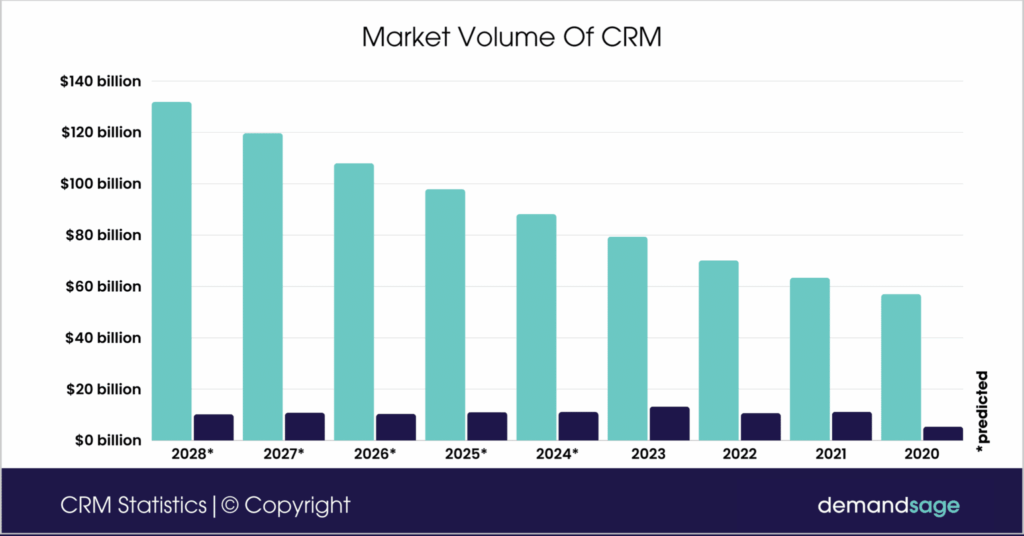
CRM Marketing Trends 2025: Navigating the Future of Customer Relationships
The world of Customer Relationship Management (CRM) is in constant flux. What was cutting-edge yesterday is quickly becoming standard practice today. As we approach 2025, the landscape of CRM marketing is poised for a dramatic transformation, driven by technological advancements, evolving customer expectations, and the ever-increasing importance of data.
This comprehensive guide delves into the key CRM marketing trends expected to dominate the scene in 2025. We’ll explore how businesses can adapt, thrive, and leverage these trends to build stronger customer relationships, boost engagement, and drive sustainable growth. Get ready to navigate the future of CRM marketing!
The Rise of AI-Powered CRM
Artificial intelligence (AI) is no longer a futuristic concept; it’s a present-day reality, and its impact on CRM is profound. In 2025, AI will be deeply integrated into every facet of CRM, from data analysis and customer segmentation to personalized marketing and automated workflows. Businesses that fail to embrace AI will find themselves falling behind the competition.
AI-Driven Customer Insights
One of the most significant impacts of AI in CRM is its ability to provide deep customer insights. AI algorithms can analyze vast amounts of data, including customer behavior, purchase history, social media activity, and more, to identify patterns, predict future behavior, and uncover hidden opportunities. This allows businesses to:
- Create hyper-personalized customer experiences: Understand individual customer preferences and tailor marketing messages, product recommendations, and service interactions accordingly.
- Improve customer segmentation: Move beyond basic demographics and create highly targeted customer segments based on behavior, needs, and lifetime value.
- Predict customer churn: Identify customers at risk of leaving and proactively intervene with targeted offers and support.
- Optimize marketing campaigns: Determine which channels, messages, and offers are most effective for each customer segment.
Automated Workflows and Chatbots
AI is also revolutionizing CRM through automation. AI-powered chatbots can handle routine customer inquiries, freeing up human agents to focus on more complex issues. Automated workflows can streamline sales processes, marketing campaigns, and customer service interactions, leading to increased efficiency and reduced costs. Expect to see:
- More sophisticated chatbots: Capable of handling a wider range of customer inquiries and providing more personalized responses.
- Automated lead scoring and qualification: Identifying and prioritizing leads based on their likelihood of converting.
- Automated email marketing campaigns: Triggering personalized emails based on customer behavior and preferences.
- Automated data entry and management: Reducing manual data entry and ensuring data accuracy.
Hyper-Personalization: Beyond the Basics
Personalization has been a buzzword in marketing for years, but in 2025, it will reach new heights. Hyper-personalization goes beyond simply addressing customers by name or sending generic product recommendations. It involves tailoring every aspect of the customer experience to individual preferences, needs, and behaviors, in real-time.
Real-Time Personalization
Real-time personalization uses data and AI to dynamically adjust the customer experience based on their current behavior. This could include:
- Personalized website content: Displaying different content and offers based on a customer’s browsing history, location, and other factors.
- Dynamic product recommendations: Suggesting products that are relevant to a customer’s current needs and interests.
- Personalized pricing: Offering different prices to different customers based on their willingness to pay.
- Personalized customer service: Providing customized support and assistance based on a customer’s past interactions and preferences.
Personalized Content Creation
AI is also being used to generate personalized content, such as product descriptions, blog posts, and even videos. This allows businesses to create a vast amount of tailored content that resonates with individual customers. This trend will gain significant traction as tools become more advanced and accessible.
The Omnichannel Experience: Seamless Customer Journeys
Customers interact with businesses across multiple channels, including websites, mobile apps, social media, email, and in-person. In 2025, the focus will be on creating a seamless omnichannel experience, where customers can move effortlessly between channels without losing context or having to repeat information. This means:
- Integrated data: All customer data is centralized and accessible across all channels.
- Consistent messaging: The same brand voice and messaging are used across all channels.
- Personalized interactions: Customer interactions are tailored to the channel they are using.
- Seamless handoffs: Customers can easily switch between channels without any disruption.
Mobile-First Approach
Mobile devices will continue to be the primary way customers interact with businesses. CRM strategies will need to be optimized for mobile, with a focus on creating user-friendly mobile apps, responsive websites, and mobile-first marketing campaigns.
Data Privacy and Security: Building Trust
Data privacy and security will be of paramount importance in 2025. With increasing concerns about data breaches and privacy violations, businesses will need to prioritize protecting customer data and building trust. This will involve:
- Strong data security measures: Implementing robust security protocols to protect customer data from unauthorized access.
- Compliance with data privacy regulations: Adhering to regulations such as GDPR, CCPA, and other emerging privacy laws.
- Transparency and consent: Being transparent about how customer data is collected, used, and shared, and obtaining explicit consent from customers.
- Data minimization: Collecting only the data that is necessary for business operations.
The Rise of CRM in Sales Enablement
CRM systems are no longer just for managing customer relationships; they are becoming essential tools for sales enablement. In 2025, CRM will play a critical role in helping sales teams close deals more effectively.
Sales Intelligence
CRM systems will provide sales teams with access to valuable sales intelligence, including:
- Lead scoring: Prioritizing leads based on their likelihood of converting.
- Sales forecasting: Predicting future sales performance.
- Competitive analysis: Tracking competitor activity.
- Sales performance analytics: Identifying areas for improvement.
Sales Automation
CRM systems will automate many of the tedious tasks that sales reps currently perform, such as:
- Contact management: Organizing and managing customer contacts.
- Email automation: Sending personalized sales emails.
- Task management: Scheduling follow-up calls and meetings.
- Reporting: Generating sales reports.
CRM and the Metaverse
The metaverse is emerging as a new frontier for businesses to connect with customers. While still in its early stages, the metaverse offers exciting opportunities for CRM marketing in 2025. This includes:
- Virtual customer service: Providing customer support in virtual environments.
- Immersive product demonstrations: Allowing customers to experience products in a virtual setting.
- Personalized virtual experiences: Creating customized experiences for customers in the metaverse.
The Human Touch in a Digital World
Even as technology advances, the human touch remains crucial. In 2025, businesses will need to find the right balance between technology and human interaction. This means:
- Empowering employees: Providing employees with the tools and training they need to provide excellent customer service.
- Building relationships: Focusing on building strong relationships with customers.
- Providing personalized support: Offering personalized support and assistance when customers need it.
n
Key Takeaways for Businesses
To thrive in the evolving CRM landscape of 2025, businesses should consider the following:
- Embrace AI: Integrate AI into all aspects of your CRM strategy.
- Focus on hyper-personalization: Tailor every customer interaction to individual preferences.
- Create a seamless omnichannel experience: Ensure customers can move effortlessly between channels.
- Prioritize data privacy and security: Build trust with customers by protecting their data.
- Leverage CRM for sales enablement: Equip your sales teams with the tools they need to succeed.
- Explore the metaverse: Consider the opportunities the metaverse offers for CRM marketing.
- Never lose the human touch: Balance technology with human interaction.
How to Prepare Your Business for CRM Marketing in 2025
Preparing for the future of CRM marketing is an ongoing process. Here’s a roadmap to help your business stay ahead of the curve:
1. Assess Your Current CRM Capabilities
Before implementing any new strategies, it’s essential to evaluate your current CRM system and processes. Consider:
- Functionality: Does your current system offer the features you need?
- Integration: Does it integrate with other key business systems?
- Data Quality: Is your data accurate, complete, and up-to-date?
- User Adoption: Are your employees effectively using the system?
Identify any gaps or areas for improvement.
2. Invest in AI and Machine Learning
AI is the future of CRM. Explore AI-powered tools for:
- Data Analysis: Uncover hidden insights from your customer data.
- Personalization: Create personalized customer experiences.
- Automation: Automate repetitive tasks and streamline workflows.
Consider investing in AI-powered CRM platforms or integrating AI features into your existing system.
3. Prioritize Data Privacy and Security
Data breaches can erode customer trust. Implement robust security measures, including:
- Encryption: Protect sensitive data with encryption.
- Access Controls: Limit access to customer data to authorized personnel only.
- Regular Audits: Conduct regular security audits to identify and address vulnerabilities.
Stay compliant with data privacy regulations.
4. Focus on Customer Experience
Customer experience is paramount. Implement strategies to:
- Personalize Interactions: Tailor interactions to individual customer preferences.
- Provide Seamless Omnichannel Experiences: Ensure consistent experiences across all channels.
- Offer Proactive Support: Anticipate customer needs and provide proactive support.
5. Train Your Team
Your employees are crucial to your CRM success. Invest in training to:
- Develop AI Skills: Train your team on how to use and leverage AI-powered tools.
- Enhance Customer Service Skills: Equip your team with the skills to provide exceptional customer service.
- Promote Data Privacy Awareness: Educate your team about data privacy and security best practices.
6. Stay Agile and Adaptable
The CRM landscape is constantly evolving. Be prepared to:
- Monitor Industry Trends: Stay informed about the latest CRM marketing trends.
- Experiment with New Technologies: Explore new technologies and strategies.
- Be Flexible: Be willing to adapt your strategies as needed.
Conclusion
The future of CRM marketing in 2025 is bright, but it requires a proactive and strategic approach. By embracing AI, prioritizing personalization, building a seamless omnichannel experience, prioritizing data privacy and security, and empowering your team, you can position your business for success in the years to come. The key is to stay informed, adaptable, and always focused on building strong, lasting customer relationships.
The trends discussed in this article are not just predictions; they are already shaping the CRM landscape. Businesses that take action now will be best positioned to capitalize on the opportunities that lie ahead. Embrace the change, and get ready to thrive in the future of CRM marketing!

